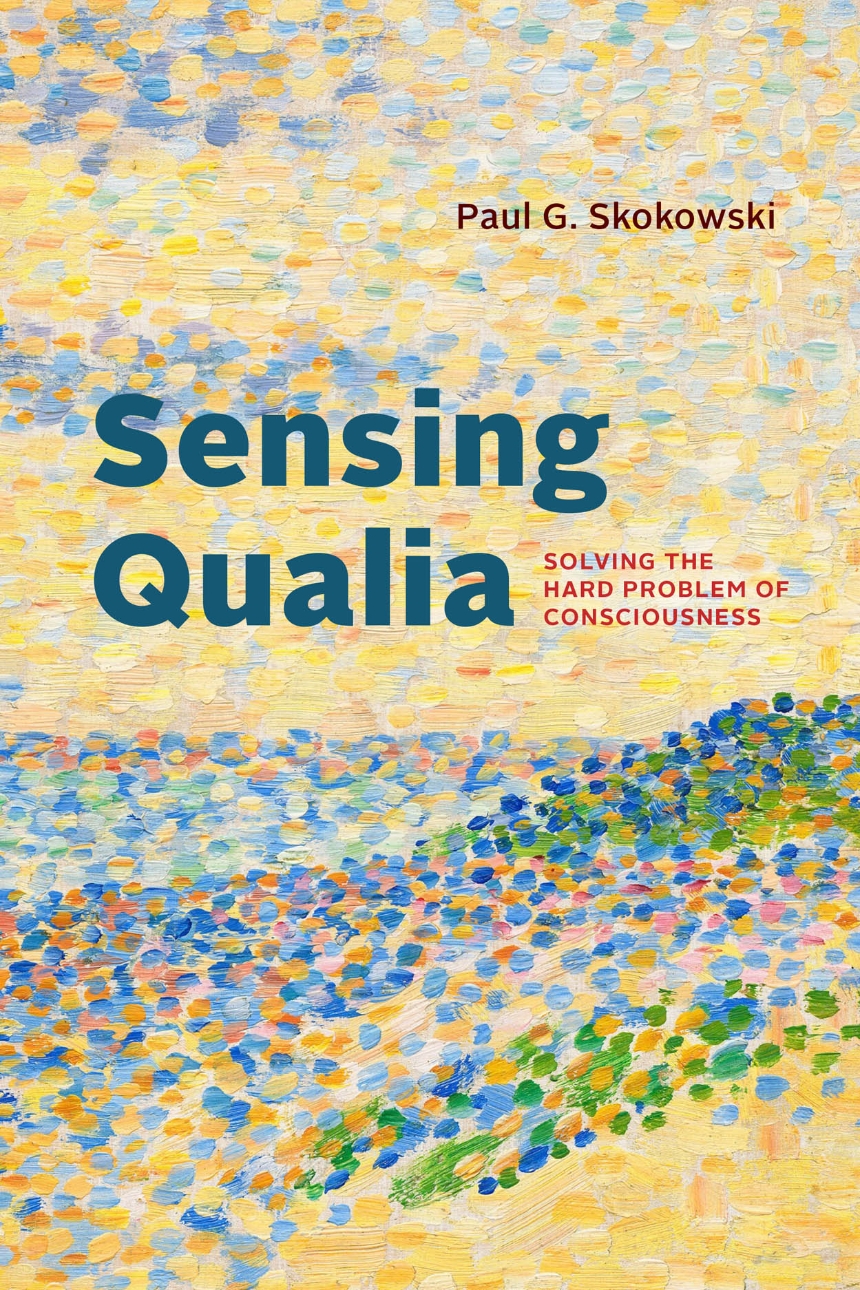Sensing Qualia
Solving the Hard Problem of Consciousness
A new, naturalistic theory of consciousness and sensory experience.
Philosophers of mind and neuroscientists often debate what they call the hard problem of consciousness, that is, how we might account for qualia—our subjective experiences of phenomena like color, taste, pain, smell, and more. In Sensing Qualia, Paul G. Skokowski surveys the most influential theories of mind since Descartes in order to establish a new theory he calls sensory naturalism, which recognizes the senses as natural detectors of physical properties in the world.
Drawing on neuroscience, physics, and philosophy, Skokowski provides a naturalistic framework for studying qualia in the physical world and explores the limits of qualia in androids and AI. The result is a compelling explanation of qualia for anyone curious about the nature of conscious experience in humans and AI.
Philosophers of mind and neuroscientists often debate what they call the hard problem of consciousness, that is, how we might account for qualia—our subjective experiences of phenomena like color, taste, pain, smell, and more. In Sensing Qualia, Paul G. Skokowski surveys the most influential theories of mind since Descartes in order to establish a new theory he calls sensory naturalism, which recognizes the senses as natural detectors of physical properties in the world.
Drawing on neuroscience, physics, and philosophy, Skokowski provides a naturalistic framework for studying qualia in the physical world and explores the limits of qualia in androids and AI. The result is a compelling explanation of qualia for anyone curious about the nature of conscious experience in humans and AI.
240 pages | 37 halftones | 6 x 9 | © 2026
Cognitive Science: Neuroscience
Philosophy: Philosophy of Mind
Reviews
Table of Contents
List of Figures
Preface
Introduction
Section I: A Brief History of the Mind
1. Dualism
2. Epiphenomenalism
3. Behaviorism
4. Identity Theory
5. Eliminative Materialism
6. Functionalism
Section II: Three Challenges to Materialism
7. Nagel’s What-It-Is-Like Arguments
8. Kripke’s Modal Argument
9. Jackson’s Knowledge Argument
Section III: Two Theories of Qualia
10. Integrated Information Theory
11. Sensory Naturalism
Section IV: Qualia, Detection, and Time
12. Detection and Quantum Mechanics
13. Time, Sensation, and Belief
Section V: Fantastic Beasts
14. Swampman, Detection, and Experience
15. Zombies
16. Androids Then and Now
Acknowledgments
Bibliography
Index
Preface
Introduction
Section I: A Brief History of the Mind
1. Dualism
2. Epiphenomenalism
3. Behaviorism
4. Identity Theory
5. Eliminative Materialism
6. Functionalism
Section II: Three Challenges to Materialism
7. Nagel’s What-It-Is-Like Arguments
8. Kripke’s Modal Argument
9. Jackson’s Knowledge Argument
Section III: Two Theories of Qualia
10. Integrated Information Theory
11. Sensory Naturalism
Section IV: Qualia, Detection, and Time
12. Detection and Quantum Mechanics
13. Time, Sensation, and Belief
Section V: Fantastic Beasts
14. Swampman, Detection, and Experience
15. Zombies
16. Androids Then and Now
Acknowledgments
Bibliography
Index
